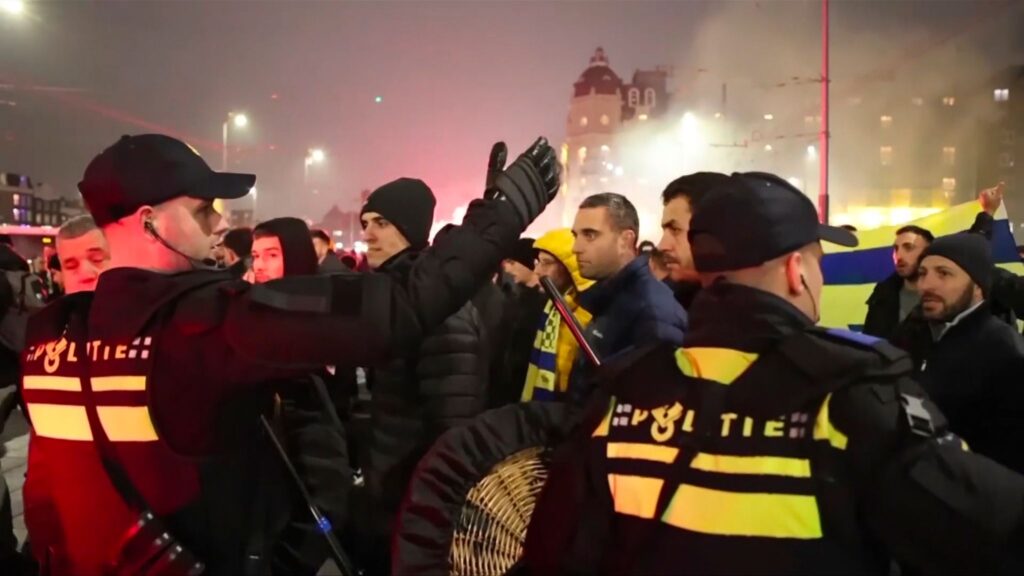Pressure is mounting on West Midlands police following their decision to ban fans of Maccabi Tel Aviv from attending a match at Aston Villa next month. The ban, which was put in place due to concerns about potential violence, has sparked widespread criticism from politicians, sports officials, and the public.
West Midlands police classified the match as “high-risk,” citing past incidents, including violent confrontations during a 2024 Europa League match between Maccabi Tel Aviv and Ajax in Amsterdam. In that match, Maccabi supporters were involved in clashes with rival fans, including tearing down Palestinian flags and chanting offensive slogans, which led to several injuries and arrests. The police said they acted on intelligence indicating a heightened risk of similar violence at the upcoming match.
However, the decision to prevent Maccabi Tel Aviv fans from traveling to the game has drawn strong backlash from a range of political figures. Both the Labour Party and Conservative Party leaders condemned the ban, with opposition leaders calling it a poor decision and a violation of basic freedoms. Simon Foster, the West Midlands police and crime commissioner, requested a review of the decision, questioning whether it was justified and whether other options were considered to ensure safety.
The controversy intensified when the UK government’s adviser on antisemitism, John Mann, challenged the police’s handling of the situation. Mann, who had investigated the Amsterdam incidents, suggested that the ban unfairly targeted Maccabi fans based on the actions of a small minority rather than addressing the broader issue of fan violence in football.
The case has also highlighted the complex intersection of politics, sports, and international conflicts. Critics argue that banning fans based on their nationality or ethnicity sends a troubling message and could potentially fuel further divisions within society, especially as tensions continue to rise over the ongoing Gaza conflict. Some voices have even called for a sporting boycott of Israeli teams, citing the ongoing violence in the region.
Meanwhile, UEFA has expressed concern over the ban, urging both clubs and local authorities to work together to ensure a safe environment for all fans. The governing body emphasized the importance of allowing supporters to attend matches without fear of discrimination or violence, suggesting that proper security measures could mitigate risks without resorting to a total ban.
As the situation unfolds, pressure is building on the authorities to reconsider their position and find a way to balance safety with the right to attend public events without facing discrimination.

